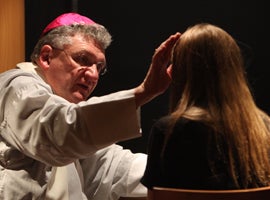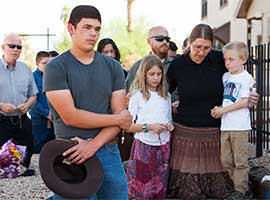List of Mortal Sins Every Catholic Should Know
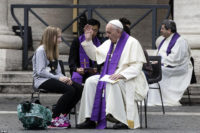 By Irin Mary -October 8, 2017
By Irin Mary -October 8, 2017
“Amen, amen, I say to you: If any man keep my word, he shall not see death forever.”
—John 8:51
The Distinction between two types of sin
All sin is an offense against God and a rejection of his perfect love and justice. Yet, Jesus makes a distinction between two types of sins. We call the most serious and grave sins, mortal sins. Mortal sins destroy the grace of God in the heart of the sinner. By their very grave nature, a mortal sin cuts our relationship off from God and turns man away from his creator. St. Paul’s letter to the Hebrews tell us that “if we sin willfully after having the knowledge of the truth, there is now left no sacrifice for sins” (Hebrews 10:26). The second type of sin, venial sin, that of less grave matter, does not cut us off from Christ. However, venial sin does weaken grace in the soul and damages our relationship with God. A person who frequently indulges in venial sin is very likely to collapse into mortal sin if they persist in their evil ways.
So what kind of Sins are Mortal?
In order for a sin to be mortal, it must meet three conditions:
Mortal sin is a sin of grave matter
Mortal sin is committed with full knowledge of the sinner
Mortal sin is committed with deliberate consent of the sinner
This means that mortal sins cannot be done “accidentally.” A person who commits a mortal sin is one who knows that their sin is wrong, but still deliberately commits the sin anyway. This means that mortal sins are “premeditated” by the sinner and thus are truly a rejection of God’s law and love.
The first condition, that a mortal sin is of grave matter, means that certain premeditated offenses against God are more severe than others. We know that some sins are graver than others (e.g. it is a graver sin to murder someone than to lie to someone). St. John tells us, “If anyone sees his brother sinning, if the sin is not deadly, he should pray to God and he will give him life. This is only for those whose sin is not deadly. There is such a thing as deadly sin, about which I do not say that you should pray. All wrongdoing is sin, but there is sin that is not deadly.” (1 John 5:16-17). Thus St. John distinguishes between mortal and venial sin. Jesus also warns us that “Anyone who does not remain in me will be thrown out like a branch and wither; people will gather them and throw them into a fire and they will be burned” (John 15:6).
What kinds of offenses against God constitute “grave matter”?
In the Bible, St. Paul gives us a list of grave sins. He states that anyone who commits these sins shall not enter the kingdom of God. “Now the works of the flesh are manifest, which are these; Adultery, fornication, uncleanness, lasciviousness, idolatry, witchcraft, hatred, variance, emulations, wrath, strife, seditions, heresies, envyings, murders, drunkenness, revellings, and such like: of the which I tell you before, as I have also told you in time past, that they which do such things shall not inherit the kingdom of God” (Galatians 5:19-20). Paul also tells the Corinthians, “know you no that the unjust shall not possess the kingdom of God? Do not err: neither fornicators, nor idolaters, nor adulterers, nor the effeminate, nor liers with mankind, nor thieves, nor covetous, nor drunkards nor railers, nor extortioners shall possess the kingdom of God” (1 Corinthians 6:9-10). These sins constitute grave matter, and if they are committed willingly and with full consent, constitute mortal sin.
The Church also tells us that the sins of anger, blasphemy, envy, hatred, malice, murder, neglect of Sunday obligation, sins against faith (incredulity against God or heresy), sins against hope (obstinate despair in the hope for salvation and/or presumption that oneself can live without God or be saved by one’s own power) and sins against love (indifference towards charity, ingratitude, and/or hatred of God) also constitute grave matter. This list of grave sins, is based on Jesus Christ’s interpretation of the gravity of the Ten Commandments. Grave sins can be classed as sins against God, neighbor and self, and can further be divided into carnal and spiritual sins (CCC 1853).
Four other sins are considered grave also. These sins not only offend God, but men as well. Thus these four sins are called “the sins that cry to heaven for vengeance” and are likewise mortal sins. These grave sins are:
The voluntary murder (Genesis 4:10)
The sin of impurity against nature –Sodomy and homosexual relations (Genesis 18:20)
Taking advantage of the poor (Exodus 2:23)
Defrauding the workingman of his wages (James 5:4)
Finally, the capital sins are also considered grave matter. These sins are vices and are defined as contrary to the Christian virtues of holiness. They are pride, avarice, envy, wrath, lust, gluttony, and sloth (acedia).
Note from the author: For those of you who do not understand why these particular sins are of grave matter, I would suggest that you refer to the Summa Theologiae of St. Thomas Aquinas. He does an excellent job of explaining why these sins are of grave matter, and also explores the counter-arguments and objections that some people have regarding these grave sins.
A thorough listing and description of grave sins:
The First Commandment, “You shall Worship the Lord Your God and Him only Shall You Serve”
Idolatry—Idolatry is the worship, veneration or belief in false gods. Because it is a direct rejection of God, it is a grave sin (1 Corinthians 6:9-10). Idolatry includes worship of images (This does not mean that we cannot venerate religious images. Veneration of images such as a crucifix is veneration of the person depicted, and not the actual image in and of itself.)
Divination, magic and sorcery—This is a grave sin which includes attempting to command the powers of the occult, control or speak to demons or spirits (especially Satan), attempting to divine the future, and the use of magic charms (CCC 2116). Deuteronomy 18:10-11 speaks against this grave sin.
Sacrilege—The sin of sacrilege is a grave sin that consists of profaning or treating unworthily the sacraments and liturgical actions of the Church as well as things consecrated to God (CCC 2120).
Atheism—Because atheistic humanism falsely seeks man and human glory and rejects God, atheism is a grave sin (CCC 2125). It is a sin against the virtue of religion. St. Paul tells us, “For the wrath of God is revealed from heaven against all unholiness and injustice of those men that detain the truth of God in injustice” (Romans 1:18).
The Second Commandment, “You shall not take the name of the Lord your God in vain”
Blasphemy—This grave sin is the uttering of hatred, reproach, defiance or speaking ill of God. Blasphemy against the Church, the saints and sacred things is also a grave sin (CCC 2148). It fails to give love and respect to our Creator. St. James speaks against sinners who “blaspheme the good name that is invoked upon you” (James 2:7).
Perjury and False Oaths—Those who take an oath in the name of the Lord and fail to keep it, or break the oath at a later date, show a grave lack of respect for the Lord of all speech (CCC 2152). Pledging oneself to commit an evil deed is also sinful. During his Sermon on the Mount, Jesus speaks against sinners who give false oaths (Matthew 5:33-34).
The Third Commandment, “Remember the sabbath day, to keep it holy”
Deliberate failure of the Sunday obligation—The Christian Sunday (the Lord’s Day) celebrates the new life of the world born in Christ’s Resurrection. All humans have a duty, to praise God and give him thanks. Thus all Christians are bound to participate in the Mass, and must partake of the Eucharist at least on holy days of obligation. Deliberate failure to do this constitutes a grave sin (CCC 2181).
The Fourth Commandment, “Honor thy father and mother.”
This commandment obliges the faithful to show respect for their parents — as children and adults. Children must obey their parents, and adults must respect and see to the care of their parents, when they become old and infirm.
The Fifth Commandment, “You shall not kill”
Murder (intentional homicide)—Direct and intentional killing is gravely sinful (CCC 2268). It is a sin that cries to heaven for vengeance, much like the murder of Abel at the hands of Cain. Indirect homicide can also be of grave nature (such as refusing to help a person in danger). However, the Church teaches that self-defense is permissible for the preservation of a one’s life. If the attacker is mortally wounded or killed, then the death of the attacker is not a sin. Those who use unnecessary aggression in self-defense can sin mortally, if the attacker is killed or gravely injured.
Abortion—Human life begins at conception in the mother’s womb. For God tells us, “Before I formed you in the womb I knew thee, and before you were born I consecrated you” (Jeremiah 1:5). Abortion is therefore murder. The oldest Christian book (besides parts of the Bible) is the Didache, a book composed by the twelve apostles or their disciples. The Didache proclaims the ancient teaching of the Catholic Church, “You shall not kill the embryo by abortion and shall not cause the newborn to perish” (Didache 2,2). All Catholics who procure a completed abortion or participate in execution of an abortion are automatically excommunicated from the Catholic Church (CCC 2272 and CIC Canon 1314).
Euthanasia—The direct killing of the sick, handicapped, or dying, regardless of motive, is a grave sin. The will and action taken to cause a person’s death is an act of murder (CCC 2277). Those who are suffering and are nearing death must be allowed to die (or recover, which is sometimes a possibility) naturally. Administration of painkillers is permissible, provided the drugs are not willed as an end or a means to precipitate death. “Discontinuing medical procedures that are burdensome, dangerous, extraordinary, or disproportionate to the expected outcome can be legitimate; it is the refusal of ‘overzealous treatment” (CCC 2278). In this case death is not willed, but is merely accepted as inevitable and cannot be impeded.
Suicide—Suicide is murder of the self. It is contrary to the love of God, self, family, friends and neighbors (CCC 2281). It is of especially grave nature, if it is intended to set an example for others to follow. Voluntary cooperation in a suicide is also contrary to the moral law. However, the responsibility of and gravity of suicide can be diminished in the cases of grave psychological disturbances, anguish, grave fear of hardship, suffering, or torture. But this does not make it morally permissible, and it is the judgement of God that will measure the gravity or responsibility of the sin.
Scandal—Scandal is an attitude or behavior that leads another to do evil. If someone is deliberately lead into a grave offense, that person’s tempter commits a grave sin (CCC 2284 and 2285). Jesus said, “Whoever causes one of these little ones who believes in me to sin, it would be better for him to have a great millstone fastened round his neck and to be drowned in the depth of the sea” (Matthew 18:6).
Drug abuse—Drug abuse does grave damage to health and life and is a grave offense. Only legitimate therapeutic use is acceptable (CCC 2290).
Gluttony—Gluttony is an excessive love for food, and is a disordered passion for wordly appetites. Because it is contrary to the virtue of temperance, it can constitute a grave sin. Gluttony is also a capital sin (CCC 1866, 2290)
Alcohol Abuse—Alcohol abuse can also be excessively dangerous and harmful to the body, and sometimes to neighbors (CCC 2290).. Because it is also contrary to temperance and is a disordered passion, it is a grave sin (1 Corinthians 6:9-10).
Terrorism—Terrorism that threatens, wounds and kills indiscriminately is of grave matter (CCC 2297). Other forms of bodily violence (kidnapping, hostage taking, non-medical amputations, mutilations and sterilization) are also contrary to the moral law.
Extreme Anger—”Anger is a desire for revenge. If anger reaches the point of a deliberate desire to kill or seriously wound a neighbor, it is gravely against charity; it is a mortal sin (CCC 2302). Christ speaks against anger saying, “Everyone who is angry with his brother shall be liable to judgement (Matthew 5:22).”
Hatred—Hatred of a neighbor is to deliberately wish him evil, and is thus a grave sin (CCC 2303 and Galatians 5:19-20).
Extortion—Extortion is to obtain something from another by coercion or intimidation. It is an act of violence and theft, and is condemned by 1 Corinthians 6:9-10.
The Sixth Commandment, “You shall not commit adultery”
Adultery—Adultery is marital infidelity. A married person who has sexual relations with anyone but their lawful spouse, even transient sexual relations, commits adultery (CCC 2380).
Divorce—The grave sin of divorce condemns those who divorce and remarry (Matthew 5:32) and those who divorce in the civil sense (except by grave dispensation). Hence divorce between two baptized Christians is a mortal sin (CCC 2384).
Fornication—Fornication is carnal union between an unmarried man and an unmarried woman and is a grave sin (CCC 2353). St. Paul condemns fornication in his epistle 1 Corinthians 6:18. All aspects of intimate contact associated with the marriage act also constitute fornication for Jesus said, “I say to you, everyone who looks at a woman with lust has already committed adultery with her in his heart” (Matthew 9:28). If lustful looks are adulterous, how much worse is lustful physical contact?
Pornography—Pornography is the display of intimate real or simulated sexual acts to a third party. Because it removes the marriage act from within the sacramental sanctity of marriage, and perverts sex, it is gravely contrary to charity (CCC 2354). The display of pornography to children and other parties is especially gravely sinful because it is gravely scandalous.
Prostitution—Prostitution reduces a person to an instrument of sexual pleasure and lust. It is gravely contrary to charity and chastity and defiles the body, the temple of the Holy Spirit. However, destitution, blackmail or social pressure can reduce the gravity of the sin. Still, prostitution is always a sin (CCC 2355).
Rape—A person who commits rape violates the respect, freedom, physical and moral integrity of the victim. It is a brutal crime of violence that can physically and psychologically scar a person for life. It is thus a grave sin (CCC 2356).
Homosexual acts—Although it remains to be determined if homosexuality is a genetic, social or personal stigma, homosexual acts are condemned by God and can NEVER be approved by the Church (1 Corinthians 6:9-10, Genesis 19:1-29, Romans 1:24-27 and CCC 2357). If homosexuals are born with the condition, then they are called to live a life of Christian purity and chastity for the greater love of Christ. Such people can experience a life of trial, which all others must treat with compassion and sensitivity.
Incest—”Incest is intimate relations between relatives or in-laws within a degree that prohibits marriage between them” (CCC 2388). St. Paul condemns incest in his letter to the Corinthians (1 Corinthians 5:1,4-5).
Masturbation—”Masturbation is the deliberate stimulation of the sexual organs in order to derive sexual pleasure” (CCC 2352). The Church teaches that sex has two main purposes that must be sought in the marriage act: sex is for reproduction of children within a valid marriage, and it is a loving, unifying act between husband and wife. Masturbation violates both aspects of the natural law and is thus a grave sin.
The Seventh Commandment—”You shall not steal”
Theft—All persons have a right to lawful private property obtained by legitimate work, inheritance or gift. To violate a person’s right to property by theft is a grave sin, especially if the loss of the property will severely hurt the victim (CCC 2408). The gravity of theft is determined by the harm it does to the victim. A poor beggar who steals a loaf of bread commits a less grave sin than a rich man who steals the savings of a destitute person. St. Paul tells us that thieves shall not inherit the kingdom of God (1 Corinthians 6:9-10).
Cheating –A cheater defrauds his victim of their property. It is morally of grave matter unless the damage to the victim is unusually light (CCC 2413).
Defrauding a worker of his wages—This is one of the sins that cry to heaven for vengeance. Defrauding a worker of his wages withholds and impedes his ability to sustain basic needs for himself and his family. It is a sin that cries to heaven for vengeance (CCC 1867).
Unfair wagers—Unfair wagers in games of chance are of grave matter if they deprive someone of what is necessary to provide for his needs and those of others (CCC 2413).
Taking advantage of the poor—The economic or social exploitation of the poor for profit harms the dignity and natural rights of the victim. It is a sin that cries to heaven for vengeance (CCC 1867).
The Eighth Commandment—”You shall not bear false witness against your neighbors”
False witness and perjury—False witness is a public statement in court contrary to the truth. Perjury is false witness under oath. Both acts are gravely sinful when they condemn the innocent, exonerate the guilty or increase punishment of the accused. They are of grave matter because they contradict justice (CCC 2476).
Adulation—Adulation is verbal speech or an attitude that encourages or confirms another in malicious acts and perverse conduct. It is a grave sin if it makes one an accomplice in another’s vices or grave sins (CCC 2480).
Lying—Lying is the most direct offense against the truth. It is gravely sinful when it significantly degrades the truth. The gravity of this sin is measured by the truth it perverts, the circumstances, intentions of the liar and harm done to the victims (CCC 2484). Lying is a sin that originates from the devil, Satan, who is “the father of all lies” (John 8:44).
The Ninth Commandment—”You shall not covet…your neighbor’s wife”
Lust—Lust is disordered desire for or inordinate enjoyment of sexual pleasure. It is disordered because sexual pleasure must not be isolated from its true, natural place: within the Sacrament of Matrimony that is ordered to procreation of children and a unifying love between husband and wife (CCC 2351). Lust, a sin and vice of the flesh, is often a difficult vice to overcome. Human weakness of will and lack of conformity to God is a result of the fall of mankind that causes a disorder between soul and body (called concupiscence) which is often manifested in lust. Yet, lust is a sin that can be overcome through prayer and grace through the Christian sacraments. Christ wills that we overcome lust and replace it with Christian love and purity of heart (Matthew 9:28). “Blessed are the pure of heart, for they shall see God” (Matthew 5:8).
The Tenth Commandment—”You shall not covet…anything that is your neighbors”
Avarice—Avarice is greed and the desire to amass earthly goods without limit. It is a passion for riches and luxury. Those who seek temporal happiness at the expense of spiritual duties, risk the grave sin of avarice. Avarice is one of the deadly vices (CCC 2536).
Envy—Envy, another capital sin, is sadness at the sight of another’s goods and the immoderate desire to acquire them for oneself. Envy can lead to grave consequences and can harm neighbors. If envy leads to grave harm to a neighbor, it is surely a grave sin.
Offenses Against Faith
Voluntary doubt of faith—Voluntary doubt of faith is disregarding the revealed truth of God and his Church (CCC 2088). Those who do this risk spiritual blindness and loss of faith.
Incredulity, heresy, apostasy, schism—Incredulity is the neglect of revealed truth or willful refusal to assent to it. Heresy is obstinate post-baptismal denial of a truth that must be believed with divine and catholic faith. Apostasy is total repudiation of the Christian faith. Schism is the refusal of submission to the Roman Pontiff or communion with the members of the Church (CCC 2089). These sins strain or break the bonds of unity with the offender and the Catholic Church.
Offenses Against Hope
Despair in hope—Those who despair in hope, cease to hope in salvation from God or help in attaining forgiveness of sin (CCC 2090). Christian hope sustains a believer’s faith and dependence on God, and should not be neglected or rejected.
Presumption—The Church teaches of two types of sinful presumption: the presumption that man can save himself without help from God and the presumption that God’s power or his mercy will merit him forgiveness without repentance and conversion (CCC 2092).
Offenses Against Charity
Indifference—This grave sin entails neglect or refusal on divine charity (a.k.a. divine love). Those who sin in indifference fail to consider the goodness of charity, and deny its power (CCC 2094).
Ingratitude—An ungrateful sinner fails or refuses to acknowledge and return the love and charity of God (CCC 2094).
Lukewarmness—Lukewarmness is negligence in response to God’s charity. It can also mean the refusal to give oneself to the prompting of charity (CCC 2094).
Acedia (spiritual sloth)—Spiritual sloth, a capital sin, is the refusal of joy that comes from God. An sinner who indulges in acedia may even be repelled by divine goodness (CCC 2094).
Hatred of God—This grave sin is born of pride and is contrary to the love of God. A sinner who hates God willfully rejects him. Hatred of God refuses to acknowledge and praise God’s goodness and obedience (CCC 2094).
Of course we must realize that this is certainly not a complete list of sins. The sins that are listed above are those of grave matter that can become mortal sins if they are done willfully and with full knowledge of their nature. Other sins are of venial nature, and are less grave than the ones listed above.
What is venial sin?
As stated before, venial sin is a sin of lesser matter than grave sin. It can also be a sin of grave matter in which the sinner did not fully consent to the sin or did not have knowledge that his actions where sinful. Venial sins will not destroy grace in the soul, and will not directly cause a person who dies in the state of venial sin to lose the promise of heaven. Yet, venial sin weakens a person’s will to avoid evil and thus may indirectly lead to mortal sin. Regardless, all sin is an offense against God and should be avoided.
All sins can be forgiven
A person who repents of their sin, intends to live a new life of grace, and receives the Sacrament of Reconciliation will be forgiven of all their sins (mortal sins in particular must be confessed in the Sacrament). Our sins can be forgiven, because Jesus Christ paid for the price of human sin by dying on the cross for the redemption of humanity. Jesus Christ, true man and true God, was the perfect sacrifice for human sin and as a result saved those who are baptized, repent and believe in him.
Because a baptized Christian can still sin, Christ instituted the Sacrament of Reconciliation for the forgiveness of our sins. Jesus gave the power to forgive sins in his name to the Church. He told his apostles, “Receive the Holy Spirit. Whose sins you forgive are forgiven them, and whose sins you retain are retained” (John 20:22–23). This means that the apostles and their successors, the priests and bishops of the Catholic Church, can forgive sins in Jesus’ name.
It is vitally important that Catholics confess sins on a regular basis, especially if we are in the state of mortal sin. A person who dies in mortal sin cannot enter the kingdom of heaven and is doomed to eternal suffering in hell. Even when we have not committed mortal sin, we are still obliged to confess our sins at least once a year. Christ, in perfect love, laid down his life so that we may be forgiven of our sins. The sacrifice of the cross should not be neglected or taken for granted. Jesus died for the life of the world and is thus the light of the world. “He that followeth me, walketh not in darkness, but shall have the light of life” (John 8:12)
Source :- http://www.saintaquinas.com/mortal_sin.html
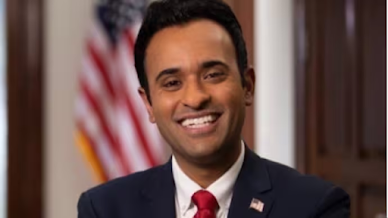








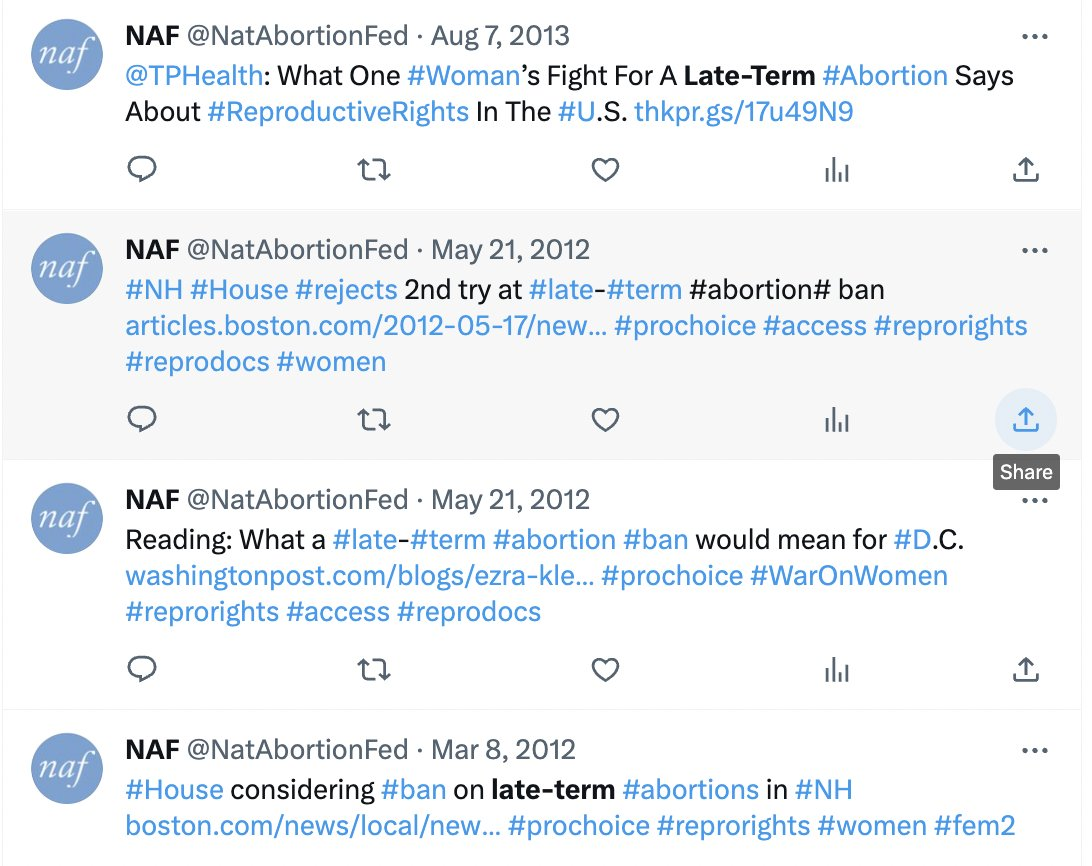
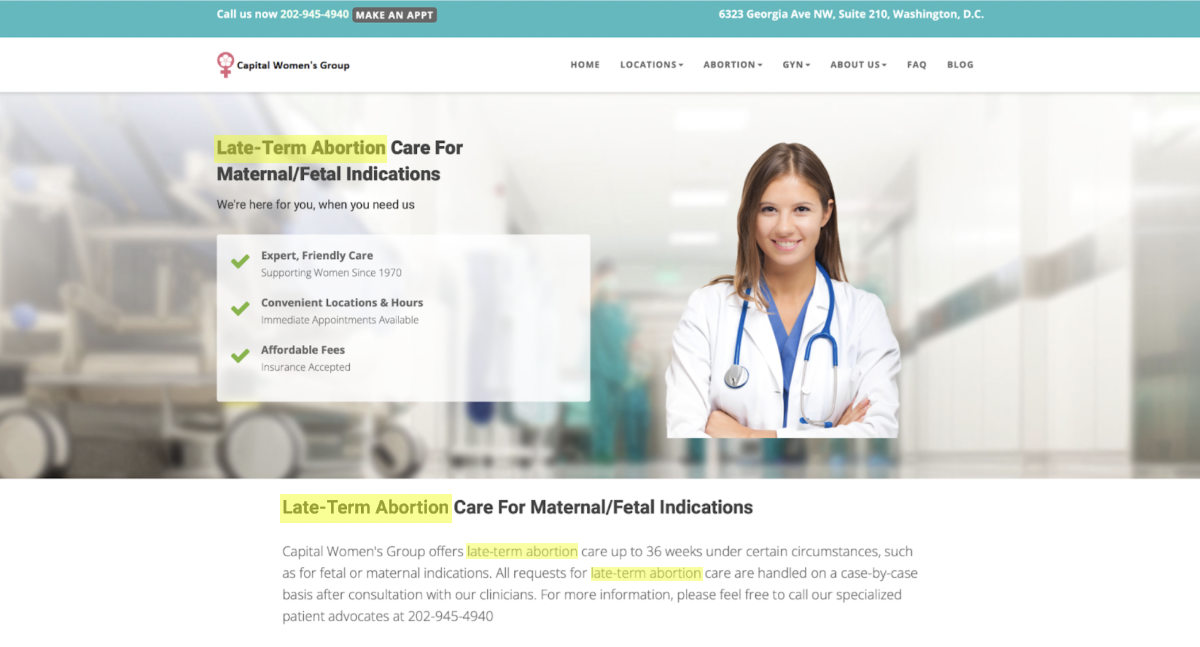







 By
By 